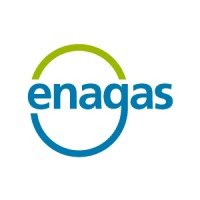ClassNK issues Approval in Principle (AiP) for dual fuel generator engine using hydrogen gas

ClassNK has issued an Approval in Principle (AiP) for a dual fuel generator engine using hydrogen gas as fuel and related machinery systems and arrangements for a 160,000m3 liquefied hydrogen carrier developed by Kawasaki Heavy Industries, Ltd. (KHI).
This marks ClassNK’s first AiP for a dual fuel generator engine using hydrogen gas as fuel.
As hydrogen is expected to be used as a clean energy source to realize a decarbonized society, ClassNK has worked on the establishment of necessary standards and certification to contribute to its maritime transportation and marine fuel use. For the 160,000m3 liquefied hydrogen carrier developed by KHI, ClassNK has so far issued AiPs for its integrated design as well as its Cargo Containment System (CCS), Cargo Handling Systems (CHS), and dual fuel main boilers that use hydrogen boil-off gas as fuel.
In the latest examination, ClassNK carried out the design review of the dual fuel generator engines using hydrogen gas as fuel and related machinery systems and arrangements based on its Part N of Rules for the Survey and Construction of Steel Ships incorporating the IGC Code, and its Guidelines for Liquefied Hydrogen Carriers incorporating the IMO’s interim recommendations for Carriage of Liquefied Hydrogen in Bulk. In addition, a comprehensive safety assessment was conducted based on the HAZID risk assessment results, which has led to the issuance of the AiP.
According to KHI, the dual fuel generator engine is capable of switching between hydrogen and low-sulfur fuel oil flexibly, and when hydrogen fuel is selected, boil-off gas naturally evaporated from the ship’s liquefied hydrogen cargo tanks is used as the main fuel at a calorie – based mixed ratio of 95% or higher to generate and supply electricity in board, which is expected to reduce greenhouse gas emissions from the ship significantly.
ClassNK will actively continue to take part in advanced initiatives toward decarbonization and also support the decarbonization of the entire maritime industry by incorporating the knowledge gained through collaboration with front runners into rules and guidelines.
